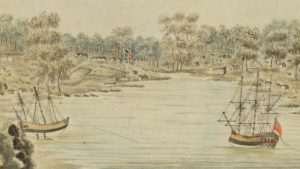Home » Commentary » Opinion » Liberalism’s impact on Australia
· Ideas@TheCentre
 The great Australian historian John Hirst once wrote a visiting American academic who commented that despite the Labor Party being in power for so few years since Federation, the library shelves were full of books about Labor and the labour movement. Books about liberalism and liberal parties, on the other hand, were hard to find.
The great Australian historian John Hirst once wrote a visiting American academic who commented that despite the Labor Party being in power for so few years since Federation, the library shelves were full of books about Labor and the labour movement. Books about liberalism and liberal parties, on the other hand, were hard to find.
David Kemp’s five-volume series on the history of Australian liberalism is therefore truly a landmark publishing event in the intellectual life of the nation, providing the most significant and overdue setting straight of the historical record.
Kemp traces the history of Australian political, economic, and social freedom back to the influence of the Enlightenment, and explain how the enlightened liberal ideas imported from Britain, the US, and Europe shaped the development of Australian society across the following two centuries.
But, Kemp’s series aside, there has been a lack of attention paid to the impact of liberalism on Australian history — and the dearth cannot simply be blamed on the way the subject is generally taught and studied from left-wing perspectives in our universities.
It also stems from the limited and largely dismal role that has been generally assigned to liberal ideas from those on the right.
This is the idea that the chief intellectual import into the Australian colonies was the utilitarianism of Jeremy Bentham, which begot what has long been considered the defining distinctive features of Australia democracy — the trait Keith Hancock famously described in his seminal book Australia as the use of politics, the use of state, to achieve the greatest material happiness of the greatest number.
This is the view of our history upon which many a free market lament has been launched about Australian political economy – and not without good reason.
Explaining the reasons why Australians after federation settled for what Paul Kelly named the ‘Australian Settlement’ — founded on tariff protection, immigration restriction, and industrial arbitration — is part of Kemp’s narrative.
But before he gets to this story, he tells us in his first two already published volumes — The Land of Dreams and A Free Country — a far more inspiring story of how Australia from foundation to federation developed as one of the most advanced politically and socially democratic nation’s on earth.
For its post-1788 European arrivals, Australia was literally a new world – unburdened by old world history, and by the traditional authority of the established church or ancient aristocracy.
These were the conditions in which was launched a vast social experiment with Enlightenment ideas, in quest of a rational political and social order based on respect for the individual and equality of rights and opportunities.
Kemp’s account shows that that it wasn’t luck that gave Australians our ‘fair go’ culture and almost unrivalled democratic rights and freedoms. The profoundly egalitarian notions we take for granted today have deep intellectual and historical roots in the distinctive Australian brand of colonial liberalism of the nineteenth century.
Kemp also presents our history as a grand drama to rival perpetual American concern with the fate of the experiment in republican government. For the issue Australian liberals worked out through our political institutions was whether a free and democratic society could be stable, could be virtuous and could be moral.
One of the few — but otherwise obscure — Australian history books that hitherto took the role of liberalism and Enlightenment thought seriously was Michael Roe’s The Quest for Authority in Eastern Australia, which argued:
that Australia’s history is most significant as a test of the new faith. Here lies proof that a nation can draw strength from this teaching, and therein find authority, sufficient yet not oppressive… Most who see the poet as their kindred spirit will believe that here men have created a society which possesses true and distinct qualities.
Through Kemp’s work, this perspective on our history is will be obscure no more.
The reader of these volumes is left in no doubt that Australian history is most significant as a test of a new faith – a test and experiment that created the distinctive features of Australian social and political life with which we are familiar; from our democratic franchise to our egalitarian social manners.
This is an edited version of Dr Jeremy Sammut’s introductory remarks for a talk by Dr David Kemp on ‘Australia as an Enlightenment Project’ at the CIS’s annual Consilium conference at Byron Bay.
Liberalism’s impact on Australia